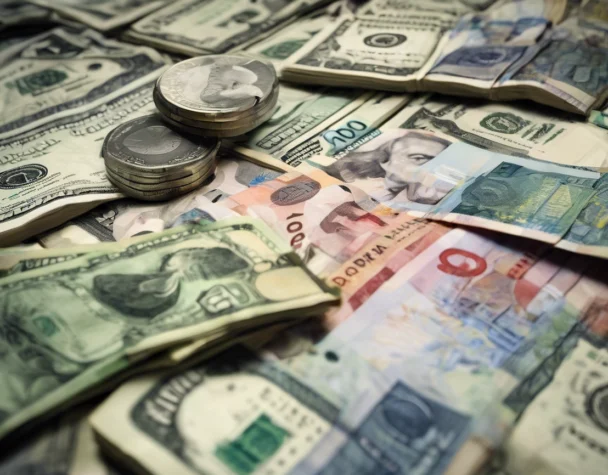
USD and EUR: Fed's Rate Decision Spurs Market Reaction
Thu, March 20, 2025The U.S. dollar experienced mixed movements after the Federal Reserve maintained interest rates while signaling potential rate cuts totaling half a percentage point by the end of the year. This dovish stance has weakened the dollar against major currencies like the euro, as investors adjusted their expectations for U.S. monetary policy. The euro, in contrast, gained some ground against the dollar as traders anticipated fewer rate hikes and a more cautious stance from the European Central Bank (ECB) in the coming months.
Despite the dollar’s slight dip, its status as a global reserve currency remains robust, though analysts warn of potential volatility as the market digests the Fed’s outlook. Investors continue to monitor U.S. economic data closely to gauge the likelihood of future rate adjustments. To gain deeper insights, check out Reuters’ analysis on currency impacts.
Emerging Market Currencies: Political and Economic Turbulence
Emerging market currencies have faced heightened volatility, with the Turkish lira and Indonesian rupiah being notable examples. The Turkish lira plunged over 10% after the arrest of a prominent political figure, undermining investor confidence. The political instability has driven substantial outflows from Turkish assets, intensifying the currency’s slide. Learn more about the implications from FT’s report on Turkey’s economic turmoil.
The Indonesian rupiah, meanwhile, hit a five-year low as concerns about the nation’s economic growth intensified. The central bank intervened to stabilize the currency, maintaining the benchmark interest rate at 5.75%. Market watchers are skeptical about the effectiveness of these measures, given the country’s high-budget policies under President Prabowo Subianto.
Safe-Haven Currencies: Yen and Swiss Franc
Safe-haven currencies like the Japanese yen and Swiss franc have exhibited relative strength amid global uncertainties. The yen appreciated by 0.3% against the dollar following the Bank of Japan’s decision to keep interest rates unchanged. This move, combined with the yen’s traditional role as a safe-haven asset during geopolitical tension, has bolstered its appeal.
The Swiss franc also maintained stability as the Swiss National Bank reduced its foreign currency interventions significantly, signaling confidence in the franc’s valuation. The SNB’s shift away from aggressive intervention suggests that the central bank is now more focused on interest rate policy to manage inflation. For more details on the SNB’s stance, see Reuters’ update on Swiss monetary policy.
Final Thoughts
The foreign currency market remains highly reactive to both economic policy decisions and geopolitical developments. Investors are urged to stay vigilant and diversify their forex portfolios to manage risks associated with ongoing global turbulence. Monitoring central bank announcements and staying updated on political developments will be crucial to navigating the complex forex landscape.

